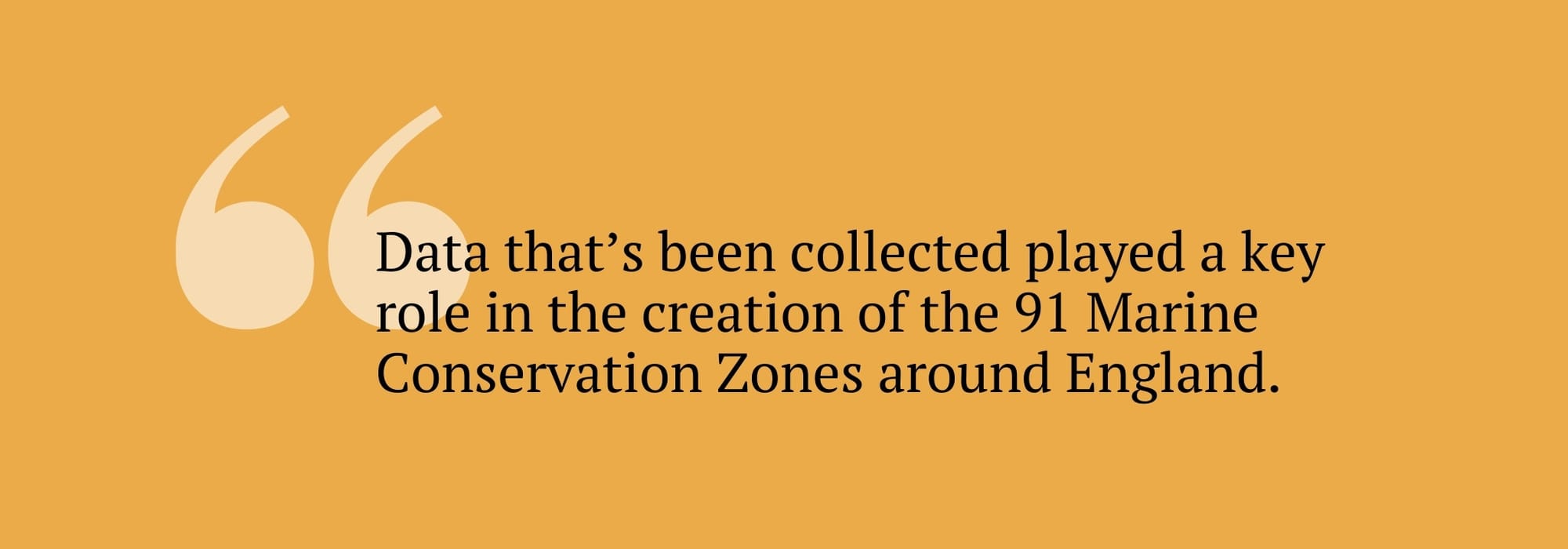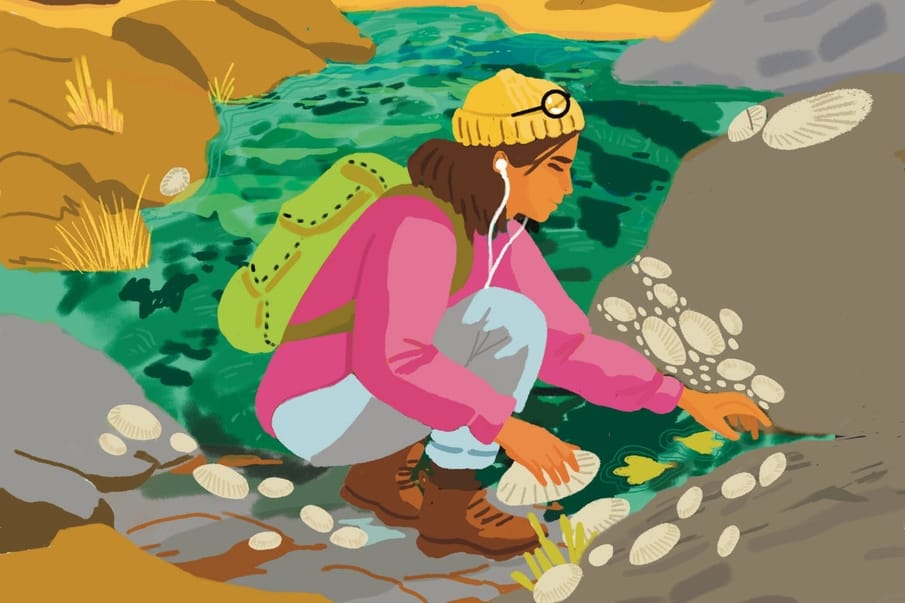Why citizen science is good for us, as well as our community
Throughout the year, during a wander along the Sussex coast, you might catch sight of groups of people methodically examining what’s at their feet. They might be chatting as they explore, stooping occasionally to pick up a piece of kelp, or stopping before calling over a friend.
Many of us would have spent hours peering into rock pools as children, turning over shells or pebbles to see what’s underneath, and shouting excitedly if we saw a crab or small fish. What these people are doing is much the same, but their observations go beyond an interesting anecdote – they are recorded, and used as data to assess the health of our coastline ecosystems. What they find, as citizen scientists, raises awareness, and can even bring about political change.
All across the country, projects like this exist. You can count butterflies from the comfort of your garden for the Butterfly Conservation’s nationwide event, or birds for the British Trust for Ornithology. Perhaps you want to join Hedgehog Champions, and submit to its BIG Hedgehog Map, or help to protect our oceans by joining the Sea Litter Quest, tracking trash for the Marine Conservation Society. The requests for volunteers are beautifully diverse, so there’s certainly something to pique anyone’s interest. You could help with transcribing wills from the sixteenth to eighteenth centuries, or even search for cosmic cataclysms with NASA.
But academics have proven that these projects are not just good for the causes involved, but also for our own wellbeing. Researchers from the UK Centre for Ecology and Hydrology (UKCEH) measured the wellbeing benefits of 500 volunteers, who were randomly selected to carry out a 10-minute nature-based activity, at least five times per day, over the course of eight days during the 2020 pandemic restrictions. This was a time of high stress for many, and yet the researchers found that all volunteers showed increased scores in wellbeing.
“Helping an individual often creates a deeper, more personal connection that builds closeness and empathy. Being part of a cause or community project, however, taps into something wider: more of a shared sense of purpose, and feelings of belonging to a group with shared values,” Dr Kate Mason, a clinical psychologist and founder of womenandwild.co.uk, explains, noting how both helping an individual and being involved in a cause or community project will impact us positively, but in different ways. “When we work toward a common goal with others, we become part of a collective effort that’s bigger than ourselves, which can inspire us, increase motivation, and foster a sense of unity – which is especially powerful in times of uncertainty or crisis.”
For organisations, the power of citizen science comes from the sheer number of people that projects can attract, and what they can achieve. Ella Garrud is coastal communities officer for Sussex Wildlife Trust’s Shoresearch project, which monitors species and habitats in the intertidal zone. That’s basically the area of the coast that is covered by the tide when it comes in, and becomes exposed when the tide goes out.

“We use the power of volunteers to help us collect the data. If we didn’t have them, there’s no way we could collect the amount of data that we do,” she explains. “The data then goes into a big national database, where it’s then verified by external experts, and can then be used to put real world conservation measures into action.” In fact, this data that’s been collected played a key role in the creation of the 91 Marine Conservation Zones around England, as it proved how important they were.
This is hugely empowering for the citizen scientists involved, who, like so many of us, might have been feeling helpless in the face of our ecological crisis. Ruby Stothard is a member of the Sussex Underwater team, which, alongside an umbrella organisation (called Sussex Bay), is raising awareness of the life teeming in the waters around the coast, including pushing for a restoration of the kelp beds that have been destroyed by trawlers. She says: “It’s hard to feel like you can make a difference with the current state of the world, but actually, you can be involved in first-hand monitoring, and recording the recovery of nature. You can get involved, and work with people who are trying to do the right thing.”
But how accessible are these projects? Do you need to come armed with extensive knowledge to be of use? Paul Boniface also works with the Sussex Underwater project, and is part of a team of almost 20,000 people studying the kelp forest off the coast of Bognor Regis. He emphasises that prior knowledge is not necessary. “What I love is that, as a community, we are learning together,” he explains, adding that the group works with PhD researchers from the University of Sussex.
“Over the past four years, my knowledge has gone through the roof,” he shares. “It’s a quid pro quo relationship. We’re helping them with our data, and they help us expand our knowledge of our local environment.”
Ella Garrud adds that their volunteers usually share “an initial interest in wildlife conservation of the marine and coastal environments”, but they “learn on the job”. She adds that it’s been beautiful to watch long-term volunteers pass down their knowledge to others, but also to see friendships being formed.
As Dr Mason explains: “Being part of a group gives us access to a social support network, which is invaluable for resilience and mental wellbeing. It reminds us that we’re not alone in facing challenges, and that, together, we can make a difference.”
Combing a beach for marine life, learning from experts, and having a chat as you do so seems like a beautiful way to spend an afternoon. But it also comes with the knowledge that you are making a tangible impact. As Dr Mason states, these projects can “shift us from fear to empowerment, because we gain a sense of knowing that our efforts matter, however small”. But they also deliver what she calls a “vital psychological boost” by giving us a sense of purpose, encouraging us with the knowledge we are helping, and giving us hope as we work with likeminded souls who also want to make a difference.
Zooniverse (zooniverse.org) is a platform sharing projects from all over the world seeking volunteers.
The Wildlife Trusts (wildlifetrusts.org/citizen-science) details projects across the UK, including region-specific options.
Earthwatch Europe (earthwatch.org.uk) has a focus on nature-based projects you can take part in.


Comments